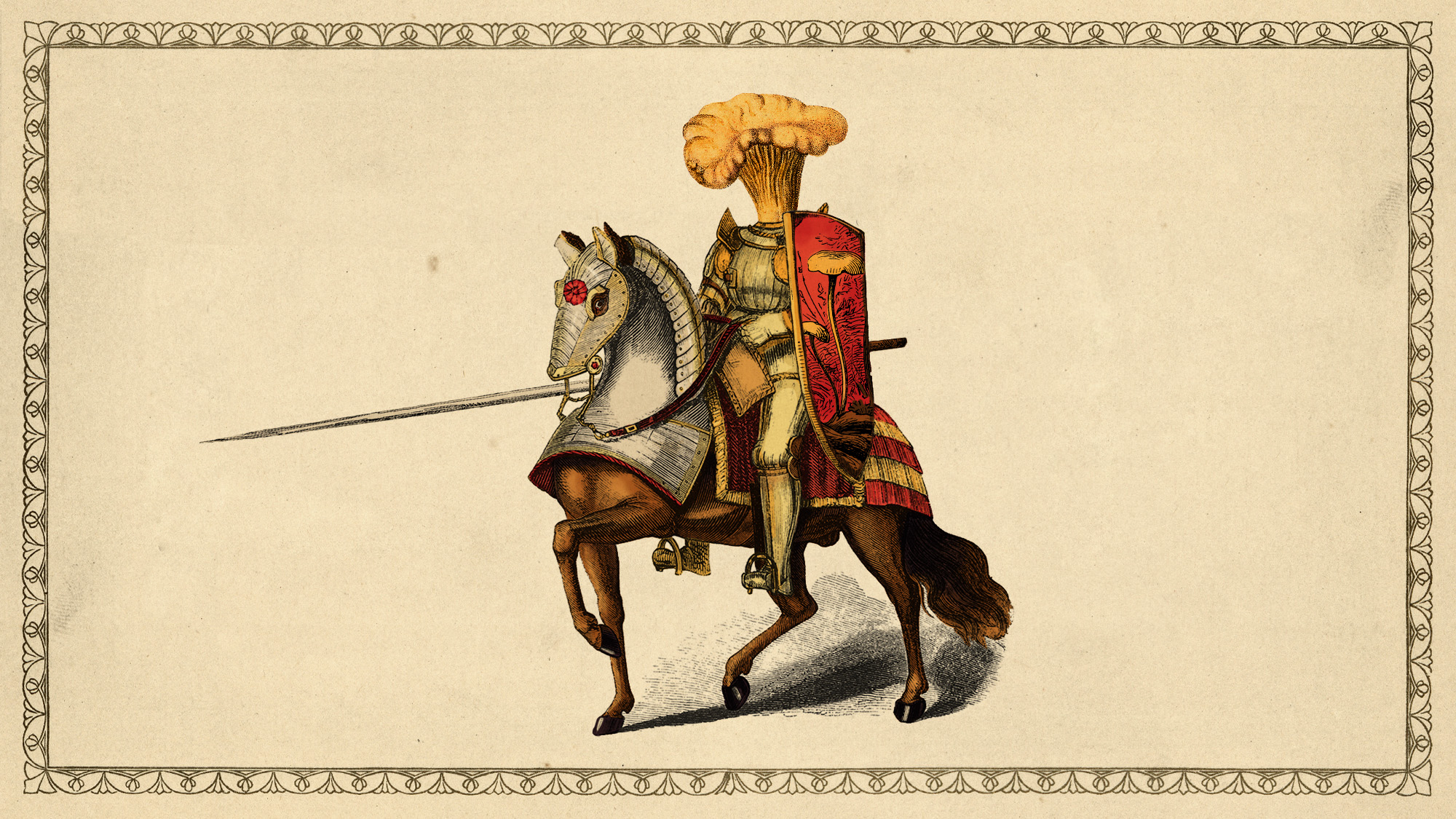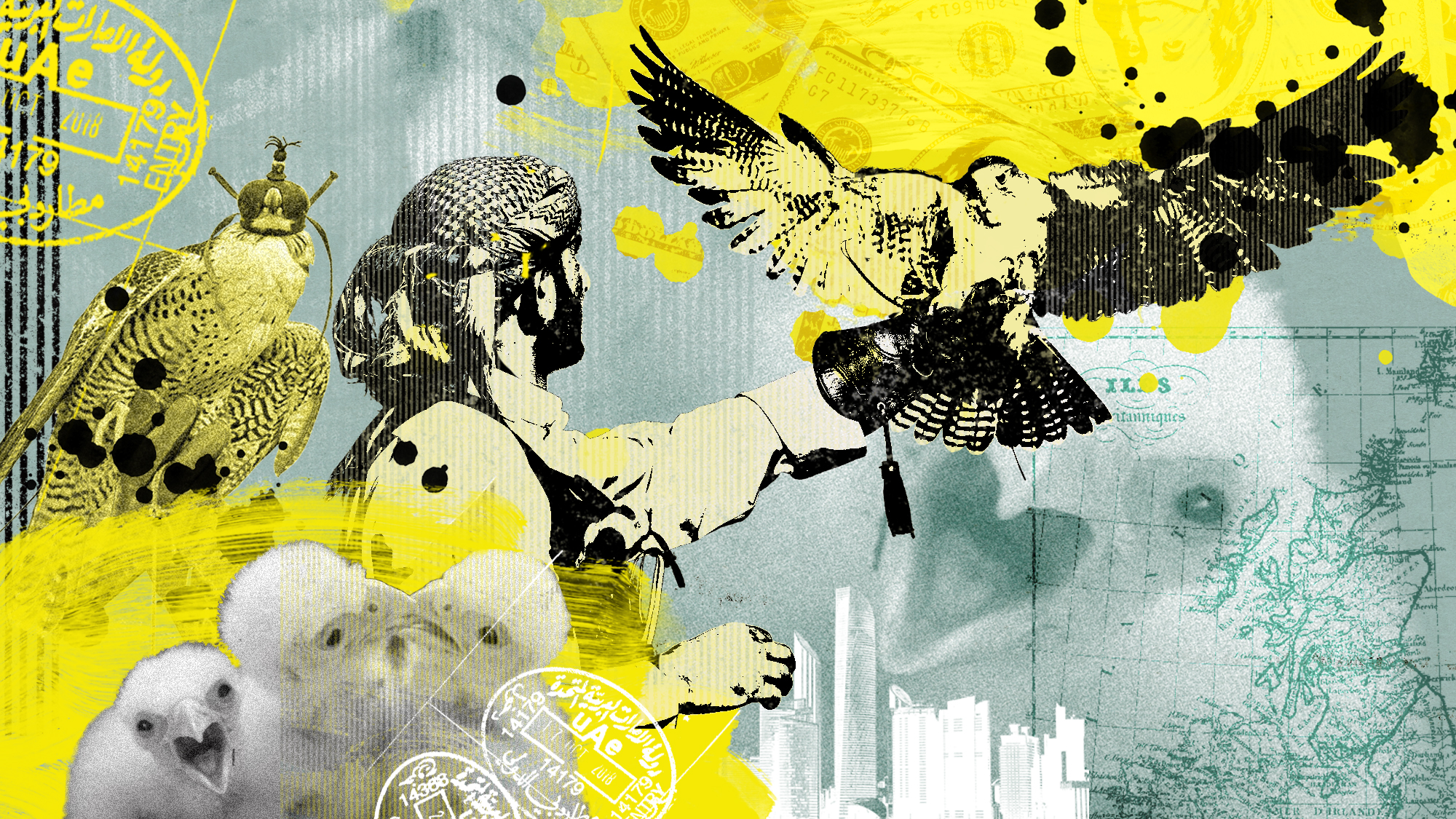The fight for fungi
The UK and Chile leading push for mouldy organisms to have the same status as flora and fauna in global conservation efforts

A free daily email with the biggest news stories of the day – and the best features from TheWeek.com
You are now subscribed
Your newsletter sign-up was successful
Fungi could be classed alongside animals and plants as a separate realm for environmental protection under plans drawn up by the UK and Chile.
The proposal, submitted to a UN conference on biodiversity this week, calls for "funga" to be granted a global legal consideration distinct from flora and fauna, and experts say this could change the future path of the planet.
Independent kingdom
The Fungal Conservation Pledge, which has been submitted to the UN convention on biological diversity at its Cop16 conference in Colombia, argues for the "recognition of fungi" as an "independent kingdom of life in legislation, policies and agreements", so as to "advance their conservation". The pledge urges signatory nations to "adopt concrete measures" that "allow for maintaining their benefits" to ecosystems and people.
The Week
Escape your echo chamber. Get the facts behind the news, plus analysis from multiple perspectives.

Sign up for The Week's Free Newsletters
From our morning news briefing to a weekly Good News Newsletter, get the best of The Week delivered directly to your inbox.
From our morning news briefing to a weekly Good News Newsletter, get the best of The Week delivered directly to your inbox.
The declaration emerged from a collaboration between the UK and Chile and the Fungi Foundation, a non-profit conservation group that has been working for 12 years to "integrate fungi into the highest levels of conservation policy and legislation".
As ever, money is at the heart of the issue. Although fungi represent "16 times more of Earth's biodiversity than plants", conservation efforts receive "less than a third of the funding that plant research does", Dr Toby Kiers, chief scientist at the Society for the Protection of Underground Networks, told Forbes.
The future is funga
Those behind the proposal think fungi get a bad press. Often "stigmatised" as smelly mould or "poisonous mushrooms", these organisms are "essential to life on Earth", said Forbes. The human race ignored the green mould on bread for thousands of years until Alexander Fleming realised this genus of fungus, Penicillium, could be used as an antibiotic, which has since saved many millions of lives. Fungi is also essential for producing everyday products such as bread, cheese, wine and beer.
There is a "growing body of evidence" that fungi play a "crucial role" in maintaining a healthy natural environment, too, said The Guardian, including "remediating soil, sequestering a third of carbon from fossil fuel emissions" and "breaking down plastics and polluting chemicals". In fact, say mycologists – those who study fungi – life on Earth as we know it would not exist without fungi.
A free daily email with the biggest news stories of the day – and the best features from TheWeek.com
Recognition of that pivotal role is an important first step, said an expert at Kew Gardens, which is home to the planet's biggest fungarium, a collection of 1.25 million pressed and dried specimens from around the world. "The science is clear,", said Kew's director of science, Alexandre Antonelli, but it is "a question of social recognition", so we "need to bring fungi into the discussion".
The variety among fungi is "remarkable" and "far wider" than the diversity that exists among plants and vertebrates, said National Geographic. The organisms are "in us, on us, and all around us" and the growing effort to "study and protect our fungal neighbours" may define our "intertwined futures". The "future is funga", so "now is the time to understand what it holds".
Chas Newkey-Burden has been part of The Week Digital team for more than a decade and a journalist for 25 years, starting out on the irreverent football weekly 90 Minutes, before moving to lifestyle magazines Loaded and Attitude. He was a columnist for The Big Issue and landed a world exclusive with David Beckham that became the weekly magazine’s bestselling issue. He now writes regularly for The Guardian, The Telegraph, The Independent, Metro, FourFourTwo and the i new site. He is also the author of a number of non-fiction books.
-
 6 of the world’s most accessible destinations
6 of the world’s most accessible destinationsThe Week Recommends Experience all of Berlin, Singapore and Sydney
-
 How the FCC’s ‘equal time’ rule works
How the FCC’s ‘equal time’ rule worksIn the Spotlight The law is at the heart of the Colbert-CBS conflict
-
 What is the endgame in the DHS shutdown?
What is the endgame in the DHS shutdown?Today’s Big Question Democrats want to rein in ICE’s immigration crackdown
-
 As temperatures rise, US incomes fall
As temperatures rise, US incomes fallUnder the radar Elevated temperatures are capable of affecting the entire economy
-
 Climate change could lead to a reptile ‘sexpocalypse’
Climate change could lead to a reptile ‘sexpocalypse’Under the radar The gender gap has hit the animal kingdom
-
 Why scientists want to create self-fertilizing crops
Why scientists want to create self-fertilizing cropsUnder the radar Nutrients without the negatives
-
 The former largest iceberg is turning blue. It’s a bad sign.
The former largest iceberg is turning blue. It’s a bad sign.Under the radar It is quickly melting away
-
 Why the Middle East is obsessed with falcons
Why the Middle East is obsessed with falconsUnder the Radar Popularity of the birds of prey has been ‘soaring’ despite doubts over the legality of sourcing and concerns for animal welfare
-
 How drones detected a deadly threat to Arctic whales
How drones detected a deadly threat to Arctic whalesUnder the radar Monitoring the sea in the air
-
 ‘Jumping genes’: how polar bears are rewiring their DNA to survive the warming Arctic
‘Jumping genes’: how polar bears are rewiring their DNA to survive the warming ArcticUnder the radar The species is adapting to warmer temperatures
-
 Crest falling: Mount Rainier and 4 other mountains are losing height
Crest falling: Mount Rainier and 4 other mountains are losing heightUnder the radar Its peak elevation is approximately 20 feet lower than it once was